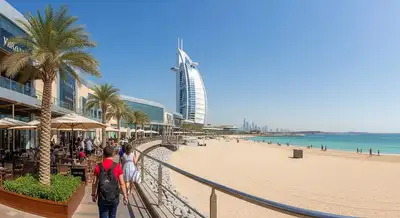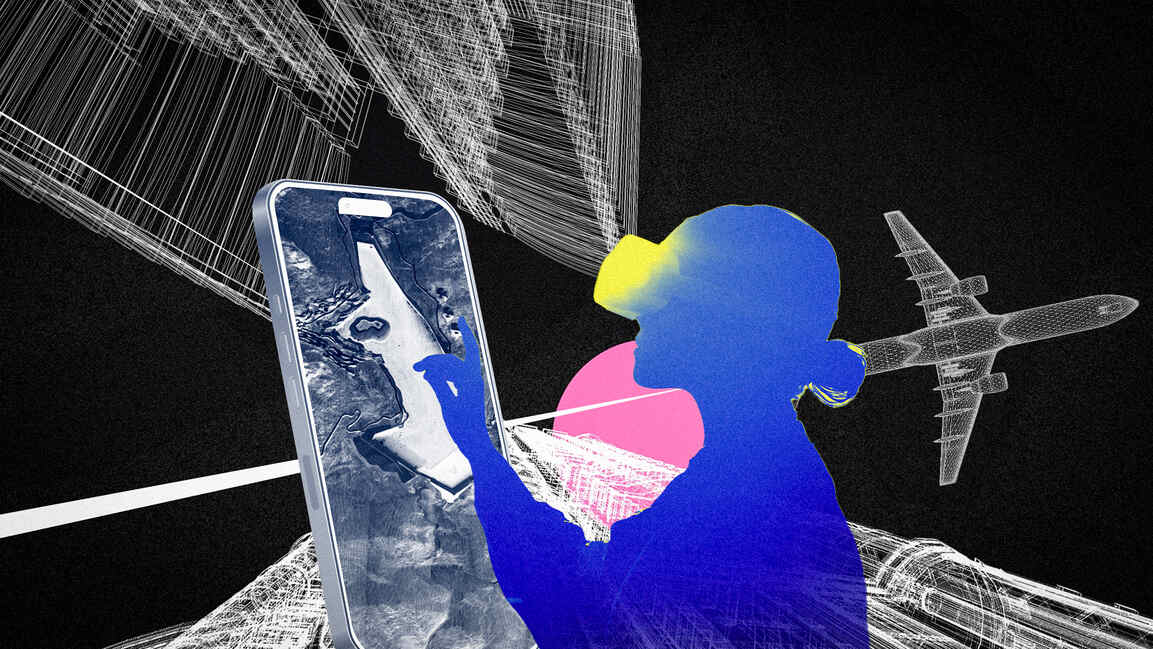Introduction
The Gulf region, with its gleaming skyscrapers, sprawling deserts, and rich cultural heritage, has long been a magnet for travelers from around the world. In recent years, however, the way visitors experience these destinations has undergone a remarkable transformation. The advent of smart tourism solutions is redefining the tourism landscape, creating more personalized, immersive, and efficient experiences for travelers. Technology is no longer just a support tool; it has become the cornerstone of modern tourism, seamlessly integrating into every aspect of a visitor’s journey.
From AI-driven itineraries to augmented reality tours, smart tourism in the Gulf is helping travelers explore cities and heritage sites like never before. These innovations not only enhance convenience and enjoyment but also deepen the connection between visitors and the destinations they explore. As Gulf countries continue to invest in technology, they are positioning themselves as global leaders in the smart tourism movement, offering solutions that balance cultural preservation, sustainability, and visitor satisfaction.
The Rise of Smart Tourism in the Gulf
Smart tourism represents a fusion of technology and travel, where data, digital systems, and intelligent applications are used to enhance every step of the visitor experience. In the Gulf, cities like Dubai, Abu Dhabi, Riyadh, Doha, and Muscat are leading the charge, implementing cutting-edge technologies that make tourism more efficient and engaging.
Smart tourism is more than just mobile apps or online booking platforms. It encompasses real-time information, personalized services, interactive experiences, and sustainable practices that together create an ecosystem where visitors feel empowered and connected. For instance, smart ticketing systems in museums and attractions reduce waiting times, while real-time navigation apps help tourists move smoothly around busy urban centers.
The integration of AI, IoT, AR, and VR into tourism infrastructure is also reshaping how travelers interact with their surroundings. From AI chatbots providing instant assistance to AR-enhanced tours that bring history to life, the Gulf’s smart tourism initiatives are enhancing the overall travel experience. By investing in these solutions, the region is not only improving convenience but also encouraging longer stays and higher engagement from tourists.
Personalized Experiences Through AI and Data Analytics
Personalization is at the heart of smart tourism. Advanced AI and data analytics allow tourism providers to understand the unique preferences of each visitor and tailor services accordingly. By analyzing travel history, search behaviors, and on-site interactions, AI algorithms can recommend attractions, dining options, cultural experiences, and shopping destinations suited to an individual’s tastes.
For example, a visitor interested in art and heritage might receive a curated itinerary highlighting museums, galleries, and traditional markets, while someone seeking adventure could be guided to desert safaris, water sports, and high-tech theme parks. These AI-powered recommendations not only save travelers time but also create meaningful experiences that leave a lasting impression.
Data-driven insights also help tourism authorities optimize operations. By monitoring peak visiting times and crowd densities, AI can suggest alternative routes or visiting hours to minimize congestion. This ensures that tourists have a smoother experience and that attractions maintain high service quality without compromising visitor satisfaction.

Immersive Cultural Engagement with AR and VR
Cultural heritage is one of the Gulf’s most compelling attractions. Through augmented reality (AR) and virtual reality (VR), tourists can now explore historical sites in ways that were previously impossible.
In Saudi Arabia, AR applications overlay historical narratives on ancient structures, allowing visitors to visualize the original grandeur of archaeological sites. Similarly, VR experiences enable tourists to virtually walk through historic palaces, heritage villages, and traditional markets, gaining an in-depth understanding of local culture without physically being at every location.
These immersive technologies also help preserve fragile sites. Instead of allowing excessive foot traffic in sensitive areas, VR tours offer the same educational and experiential benefits without damaging the original structures. This approach not only enhances visitor experiences but also supports the long-term preservation of cultural heritage.
Moreover, AR applications extend to city tours and shopping experiences. Interactive maps, digital guides, and location-based storytelling create engaging, gamified experiences that make exploration fun, informative, and memorable. Tourists can interact with their surroundings in real time, discovering hidden gems, historical facts, and local traditions in ways that standard guidebooks cannot provide.
Seamless Travel with Smart Infrastructure
The Gulf is known for its modern infrastructure, and smart technology is elevating it further to enhance visitor experiences. Transportation, in particular, has seen significant improvements through AI-powered traffic management, autonomous vehicles, and smart parking solutions.
Visitors now enjoy smoother commutes with real-time traffic updates, intelligent routing, and ride-hailing platforms integrated into travel apps. Public transportation systems are becoming more efficient, with digital ticketing, predictive scheduling, and contactless payments improving accessibility and convenience.
Smart hotels and attractions further streamline the tourist journey. Mobile check-ins, digital room keys, and AI concierge services ensure that travelers spend less time on administrative tasks and more time exploring. Restaurants and shopping centers are also leveraging technology, using AI to optimize service, predict demand, and create personalized offers.
In addition to improving convenience, smart infrastructure contributes to sustainability by reducing energy consumption, minimizing waste, and optimizing resources. This creates a tourism ecosystem that is both visitor-friendly and environmentally responsible.
Sustainable Tourism Practices Enabled by Technology
Sustainability has become a central focus in Gulf tourism strategies, and smart technologies play a key role in achieving these goals. AI and IoT devices help monitor environmental impacts, track resource usage, and implement eco-friendly practices across the tourism sector.
Hotels and resorts use AI-powered systems to manage water and energy consumption efficiently. Smart grids and sensor networks monitor usage patterns, enabling real-time adjustments that reduce waste. In the hospitality sector, AI predicts food demand, minimizing excess production and food wastage.
Tour operators also leverage technology to promote sustainable travel. Digital guides and apps inform tourists about eco-friendly practices, local conservation efforts, and environmentally responsible activities. Smart tourism solutions, therefore, not only enhance visitor experiences but also foster conscious travel behavior that supports the long-term health of the environment.
Enhancing Visitor Safety and Security
Tourist safety is a priority in the Gulf, and smart technologies play a vital role in maintaining secure environments. Real-time surveillance systems, emergency alert apps, and AI-driven monitoring platforms provide instant information about potential risks, allowing authorities to respond swiftly.
For travelers, safety-enhancing technologies offer peace of mind. Mobile applications provide location tracking, emergency contacts, and real-time alerts during natural events or unexpected situations. Smart surveillance in public areas ensures that tourist zones remain secure, while AI analytics detect anomalies that may indicate potential threats.
This emphasis on security not only protects visitors but also strengthens trust in the region as a safe and reliable travel destination. It encourages higher tourist inflow, creating a positive feedback loop that benefits local economies and tourism-dependent communities.
Collaboration Between Public and Private Sectors
The rapid growth of smart tourism in the Gulf is largely driven by effective collaboration between government entities and private enterprises. Public-private partnerships (PPPs) facilitate the implementation of innovative solutions, from AI-powered ticketing systems to VR cultural experiences.
Governments provide the regulatory framework, infrastructure, and investment needed to develop smart tourism projects, while private companies contribute technological expertise, operational efficiency, and market-driven insights. This collaboration ensures that tourism initiatives are both technologically advanced and commercially viable.
Successful partnerships have resulted in flagship projects such as integrated smart city platforms, AI-powered tourist guidance apps, and immersive museum experiences. By pooling resources and knowledge, the Gulf is creating a unified, high-quality tourism ecosystem that meets the expectations of modern travelers.

Future Prospects: AI-Powered Personal Assistants and Beyond
The future of smart tourism in the Gulf is bright, with emerging technologies promising even more transformative experiences. Generative AI, for instance, is poised to revolutionize how tourists interact with travel services.
AI-powered personal assistants can provide real-time recommendations, answer complex queries, and even help with bookings and reservations. Travelers could engage with these assistants through voice, chat, or AR interfaces, making the experience highly intuitive and interactive.
Additionally, predictive analytics may anticipate tourist needs before they arise. From suggesting optimal visiting hours to highlighting hidden cultural events, AI can act as a proactive guide, ensuring that every trip is perfectly tailored. Combined with VR and AR, this technology will create fully immersive, personalized journeys that adapt to a visitor’s preferences in real time.
The Gulf is also exploring the integration of blockchain for secure payments and identity management in tourism. These innovations aim to create trust, transparency, and efficiency, further enhancing the overall visitor experience.
Conclusion
Smart tourism solutions are more than just technological enhancements; they represent a fundamental shift in how destinations interact with visitors. By combining AI, IoT, AR, VR, and sustainable practices, Gulf countries are creating tourism experiences that are seamless, immersive, and personalized.
The region’s investment in smart infrastructure, security, and cultural engagement is paying off, transforming cities into world-class destinations that balance innovation with heritage preservation. As the Gulf continues to pioneer these solutions, it sets a global benchmark for how technology can elevate tourism while promoting sustainability, safety, and cultural appreciation.
Visitors to the Gulf today are not just travelers they are participants in a digitally enhanced, culturally rich, and sustainably managed journey. Smart tourism ensures that each journey is memorable, convenient, and impactful, paving the way for a future where every visitor leaves with a profound connection to the destinations they explore.
Do follow Gulf Magazine on Instagram.
Also Read – Robotics and Automation Revolutionize Gulf Manufacturing Industries Rapidly



